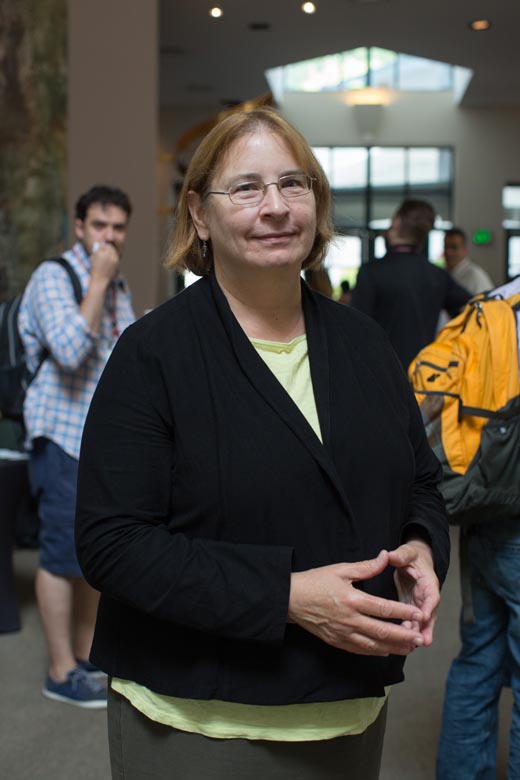Meet Alex Moon of New Mexico State University! The third year PhD graduate student in Dr. Jiannong Xu’s Mosquito Genomics lab participated in this week’s Genome Engineering: CRISPR Frontiers virtual meeting. This is his first meeting at CSHL and he presented a poster entitled “CRISPR-Cas13a mediated RNA interference in Anopheles gambiae and Aedes aegypti mosquitoes.”
Tell us about your research.
I study the immunometabolism of the malaria mosquito. By inhibiting the metabolic infrastructure, we are able to prevent the immune system from working correctly, thus killing the mosquito and preventing malaria.
How did you decide to focus on this area/project?
During my undergraduate studies, I was an Emergency Medical Technician and worked in local hospital Emergency rooms and on the county EMS as a “street-medic.” I found a passion in helping fix and care for patients, and it set a precedence to my love for medicine. I obtained a master’s in biomedical sciences from a medical school, and then transitioned to a researcher instead of a medical doctor. New Mexico State University has an interest in mosquitoes and prevention of mosquito-borne diseases. Each year, billions of people throughout the world are at risk for diseases carried by the mosquito, and millions succumb to mosquito-borne disease. The mortality rate has begun to trend upwards, desperately requiring new methods for mosquito control and prevention of disease transmission. I became interested in the genetics of the mosquito, and it ultimately led me to my current PI and dissertation topic of inhibiting the immunometabolism of malaria mosquitoes.
What and/or who is the inspiration behind your scientific journey?
As a child, I grew up watching Bill Nye the Science Guy, and he started my interest in science. I would watch documentaries and read about researchers and doctors who helped prevent and eradicate diseases and use biomedical technologies to prevent mortality, and I wanted to be just like them. My time as a medic showed me my interests lie in infectious disease research leading me to study mosquito-borne disease. As my scientific journey progresses, my inspiration continues to be the people I helped and will help in their time of illness.
Where do you see yourself in five years?
It is my hope to prevent infectious diseases from inflicting great harm to humans. We are in a constant arms race to kill the disease before it kills us, and I want to be in the fight. My hope is to help heal and prevent diseases to large populations of people, and I believe vaccines are the vehicle in driving the prevention of disease progression and mortality. In the next five years I hope to be researching and developing new, cutting-edge vaccines.
What do you love most about being a researcher?
I most love the traveling and talking aspect of research. More specifically, I love the fact research allows me the opportunity to meet new people while traveling. What other profession allows you to travel to new places, see friends (or people that might become your new friends), and talk about what you do every day?
What drew you to attend this meeting?
I listen to at least one audiobook a week while driving to lab or performing bench work. I was able to listen to “The Code Breaker: Jennifer Doudna, Gene Editing, and the Future of the Human Race” by Walter Isaacson, and it references this gene editing conference multiple times. I heard it, quickly looked it up on the CSHL website, and submitted an abstract. Also, if Walter Isaacson is reading this, thanks for the inspiration to attend this meeting, and your book was fantastic!
What is your key takeaway from the Meeting; and how do you plan to apply it to your work?
A key takeaway from the Meeting was the vast amount of CRISPR work currently being performed in many new Cas systems. I originally used Cas13a for gene knock-downs, and this meeting gave me new ideas for different Cas systems for knock-outs or knock-ins.
What feedback or advice would you share with someone considering to participate in this meeting?
Plain and simple: DO IT. There is no conference available that has specific CRISPR work encompassing multiple areas of the field.
What’s the most memorable thing that happened during the Meeting?
The most memorable aspect of this Meeting is the ability to represent the Choctaw Nation of Oklahoma at a renowned CRISPR Meeting. I would like to give a “Yakoke” (Choctaw for “Thank you”) to the Choctaw Nation of Oklahoma and the Chahta Foundation for the academic support – truly, I wouldn’t be able to present and attend world-renowned meetings without the assistance.
Thank you to Alex for being this week's featured visitor. To meet other featured researchers - and discover the wide range of science that takes part in a CSHL meeting or course - go here.
Images provided by Alex Moon







